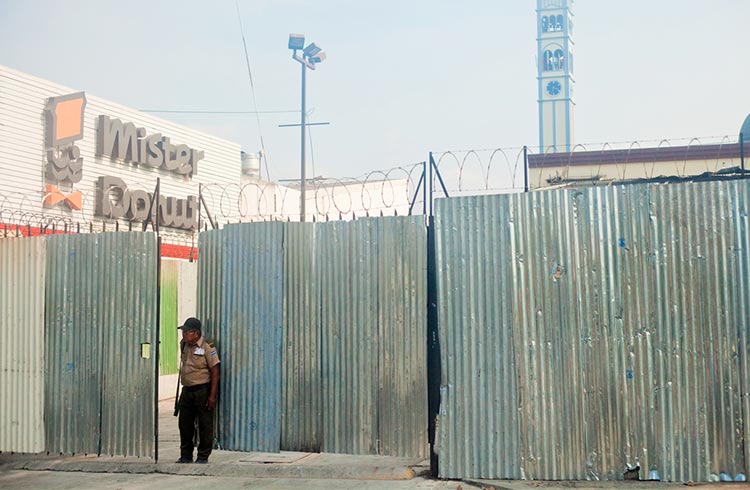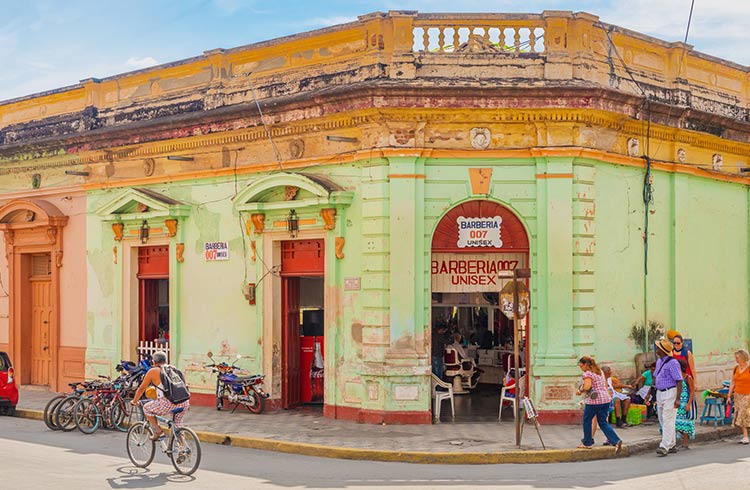Is it Safe to Travel to El Salvador? Essential Travel Safety Tips
Is violent crime or gang violence a threat to travelers in El Salvador? Learn how to stay safe before you go with these travel tips.
 Photo © iStock/cnicbc
Photo © iStock/cnicbc
Whether you’re hiking to the top of a volcano, catching waves or exploring archaeological sites—it's hard to believe that El Salvador presents significant safety challenges for visitors. While the country has one of the highest homicide rates in the world, gang violence is rarely directed at travelers. However, exercising caution is crucial to staying safe during your trip.
Here’s what travelers need to know to stay safe in El Salvador now.
- General travel safety tips
- Emergency numbers to call in El Salvador
- Safe places to go in El Salvador
- Gangs and violent crime in San Salvador
- Taxis and shootouts
- ATM and credit card safety in El Salvador
- After dark in El Salvador: Is it safe?
- If you’re being followed
General travel safety tips
- Stay updated: Before traveling, regularly check travel advisories from your government or trusted sources for updates on safety conditions in El Salvador.
- Travel insurance: Ensure that you have travel insurance that covers theft, medical emergencies, and unexpected incidents.
- Secure your valuables: Keep your belongings out of sight, avoid displaying expensive jewelry or electronics, and store your passport in a secure place (carry a photocopy with you instead).
- Vaccinations: Consult your doctor about any necessary vaccinations. Mosquito-borne diseases, such as dengue or Zika, can be prevalent, so wear insect repellent and long-sleeved clothing, especially at dawn and dusk.
- Stay connected: Share your travel itinerary with friends or family back home, and check in regularly.
- Local laws and customs: Familiarize yourself with El Salvador’s local laws and respect cultural norms to avoid unwanted attention or conflict.
Emergency numbers to call in El Salvador
Keep a list of local emergency numbers and your embassy or consulate's contact details handy.
- For police, fire or medical emergencies: dial 911
- POLITUR are the tourist police, who regularly patrol key tourist areas. If you experience a crime, get a police report.
- American embassy emergency number: dial 2501-2999
Safe places to go in El Salvador
Safe places to visit in El Salvador include Escalón, San Benito, and Zona Rosa in San Salvador, which are known for their security.
Suchitoto offers a peaceful colonial town experience, while El Tunco is popular for surfers. The Ruta de Las Flores is a scenic, safer route through charming towns like Juayúa and Ataco.
For nature enthusiasts, El Imposible National Park is a safer option for hiking, especially with a guide. Santa Ana and La Libertad are also safe destinations for visitors.
Gangs and violent crime in San Salvador
Gang-related violence is a persistent issue in El Salvador, with around 4,000 murders reported annually. While tourists are generally not targeted, it’s essential to avoid high-risk areas.
Places to avoid:
- Downtown San Salvador: Certain areas, such as Soyapango, Apopa, and Mejicanos, are known for high criminal activity. These neighborhoods are best avoided, especially after dark.
- Public buses: Gang-related violence on buses is a serious problem. Armed robberies and even grenade attacks have occurred. If you need to travel within the country, opt for private transportation.
Travel safety tips in high-crime areas:
- Stick to safer districts, such as Escalón, San Benito, Zona Rosa, Maquilishuat, La Gran Vía, and Multiplaza.
- Plan routes carefully and use reliable transportation. Avoid wandering in unfamiliar areas.
- Be cautious in crowded places like bus stations. For instance, the area near Tica Bus Station is notorious for street crime, so take a taxi rather than walk, even during the day.
Taxis and shootouts
Shootouts between gangs and law enforcement can occur, and firearms are common. To stay safe:
- Use registered taxis or transportation recommended by your hotel. Confirm with the hotel which companies are reliable.
- If a dispute occurs near you, move away quickly and discreetly. Do not attempt to intervene or confront anyone.
Learn how travel insurance could help you in a medical emergency.
ATM and credit card safety in El Salvador
Credit card fraud, especially skimming, is a risk in El Salvador. When withdrawing money, follow these tips:
- Use ATMs inside well-lit, secure areas like shopping malls or banks.
- Inspect the ATM for any signs of tampering. Look for hidden cameras or anything suspicious attached to the machine.
- Try to change money at banks or reputable hotels rather than using random ATMs.
After dark in El Salvador: Is it safe?
Like in many Central American countries, the risk of crime increases after sunset. Both walking and driving at night present risks:
- Stay indoors after dark whenever possible. If you must go out, travel with a group and use registered transportation.
- When driving, lock your car doors and keep the windows rolled up, especially in remote areas where carjackings are more common.
If you’re being followed
Some criminals have been known to follow tourists from the airport or hotels. They may target you if they believe you're carrying valuable items:
- Stay vigilant when leaving the airport and avoid secluded routes.
- Don't resist if you’re being robbed. Your safety is more important than material items. Comply with demands to minimize the risk of escalation.
- Hikers and climbers in remote areas should consider hiring an armed guard for protection, as robberies can occur on popular hiking trails.
By staying aware and cautious, travelers can enjoy El Salvador without unnecessary risks.
Related articles
Simple and flexible travel insurance
You can buy at home or while traveling, and claim online from anywhere in the world. With 150+ adventure activities covered and 24/7 emergency assistance.
Get a quote

No Comments